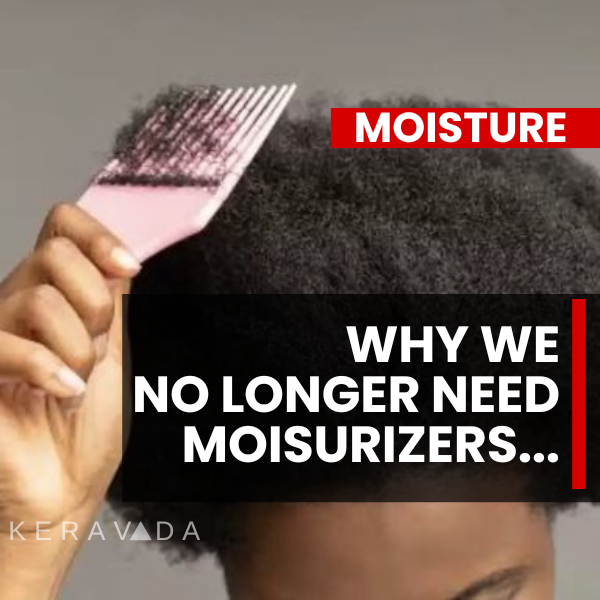Why Black Women No Longer Need Hair Moisturizers
Introduction
In the ever-evolving world of hair care, a provocative question arises: do Black people still need traditional hair moisturizers? While these products have been a staple in African American hair care routines for generations, advancements in hair care science have paved the way for more targeted solutions that challenge the conventional wisdom surrounding moisturizers. This article delves into the evolution of hair moisturizer formulations, examines the key ingredients to look for in effective products, and sheds light on how modern hair care innovations can meet the unique moisturizing needs of various hair types, particularly those common among Black individuals.
The Evolution of Hair Moisturizers
Hair moisturizers have undergone a significant transformation over the years, moving from basic formulations to advanced treatments that address specific hair concerns. In the past, moisturizers were often heavy, oil-based products that aimed to provide hydration but often left hair greasy and weighed down. However, as our understanding of hair science has grown, so too has the sophistication of moisturizer formulations. Today, we see a shift towards products that offer multifunctional benefits, combining hydration with repair, protection, and even styling properties. This evolution has opened up new possibilities for maintaining healthy, moisturized hair without relying on the one-size-fits-all approach of traditional moisturizers.
Understanding Hair Moisturizers
To grasp the role of hair moisturizers in modern hair care, it’s essential to understand what they are and how they work. At their core, hair moisturizers are designed to hydrate the hair shaft and prevent moisture loss. They typically contain a combination of ingredients that attract and seal in moisture, such as humectants, emollients, and occlusives. However, it’s important to distinguish between moisturizers, which actively hydrate the hair, and sealants or oils, which help to lock in that moisture and protect the hair shaft from external stressors. Understanding these distinctions is crucial for creating a well-rounded hair care regimen that addresses the specific needs of your hair type.
Key Ingredients in Effective Hair Moisturizers
When searching for a high-quality hair moisturizer, it’s essential to look for products that contain a blend of nourishing ingredients. Natural oils, such as coconut, jojoba, and argan oil, are excellent emollients that help to soften and condition the hair. Butters, like shea and mango butter, provide deep hydration and help to seal in moisture. Humectants, such as glycerin and aloe vera, attract moisture from the environment and draw it into the hair shaft. Proteins, like silk and keratin, strengthen and repair damaged hair, while vitamins, such as vitamin E and B5, promote overall hair health. When combined, these ingredients create a powerful moisturizing cocktail that can transform dry, brittle hair into soft, resilient tresses.
Identifying Quality Hair Moisturizers
With so many hair moisturizers on the market, it can be challenging to separate the truly effective products from those that fall short. To ensure you’re investing in a quality moisturizer, it’s crucial to read labels carefully and understand ingredient lists. Look for products that prioritize natural, nourishing ingredients and avoid those that contain harsh chemicals, such as sulfates, certain alcohols, and silicones, which can strip the hair of its natural oils and lead to further dryness and damage. Additionally, be wary of products that make overhyped claims or promise overnight miracles. True hair health is a journey, and the most effective moisturizers are those that deliver consistent, long-term results.
The Role of Hair Moisturizers in Modern Hair Care Routines
While the idea that Black people no longer need hair moisturizers may seem controversial, it’s important to understand that this statement reflects the evolution of hair care, rather than a dismissal of the importance of hydration. Modern hair moisturizers are formulated with a deep understanding of the unique needs of African American hair, which tends to be more porous, prone to dryness, and require more intensive moisturizing than other hair types. By choosing products that are tailored to your specific hair type, porosity, and personal hair goals, you can optimize your hair care routine and achieve the best possible results.
Conclusion
The notion that Black people no longer need hair moisturizers is not a call to abandon hydration altogether, but rather an invitation to rethink our approach to moisture in hair care. As our understanding of hair science has evolved, so too have the products and techniques we use to keep our hair healthy and hydrated. By educating ourselves on the key ingredients to look for, learning to identify quality products, and tailoring our hair care routines to our individual needs, we can unlock the full potential of our hair and embrace a new era of moisture-rich, healthy tresses. So, while the traditional concept of “hair moisturizers” may have evolved, the importance of proper hydration remains as crucial as ever.

